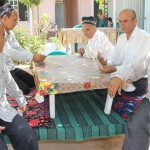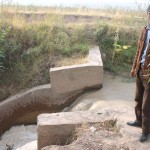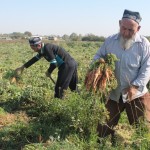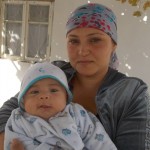
Recognizing the role of men as key decisionmakers in Tajik families, USAID’s Maternal and Child Health project is working to provide men with the necessary information and incentives to serve as partners and leaders in improving the health of their families and communities.

Two main canals provide irrigation water for 21 villages in Dahana subdistrict, a rural municipality in Kulob in southern Tajikistan. For years, farmers could not reliably access water from the canal, and the government water authority lacked capacity and resources to improve the system.

As a shareholder of Bakhtiyor-1 Farm in Khatlon province, Tajikistan, Abdurakhmon Safarov worked his farm for many years. But due to dwindling profits, Safarov traveled to Russia to earn money and better provide for his family.

Davlatdiyor Shohrahimov lives with his large extended family of 18 in the village of Rudaki, located in the Qumsangir district of southern Tajikistan. The farmland there is irrigated by a Soviet-era irrigation canal which, until recently, was in severe disrepair, without adequate maintenance for the last 12 years.

Qudratova and her husband were both unemployed from 2012 to 2013 and struggled to afford formula for their two older children. Because the children, 5 months and 3 years old at the time, struggled with illnesses, the family also had to find money to pay for medicine.








Comment
Make a general inquiry or suggest an improvement.